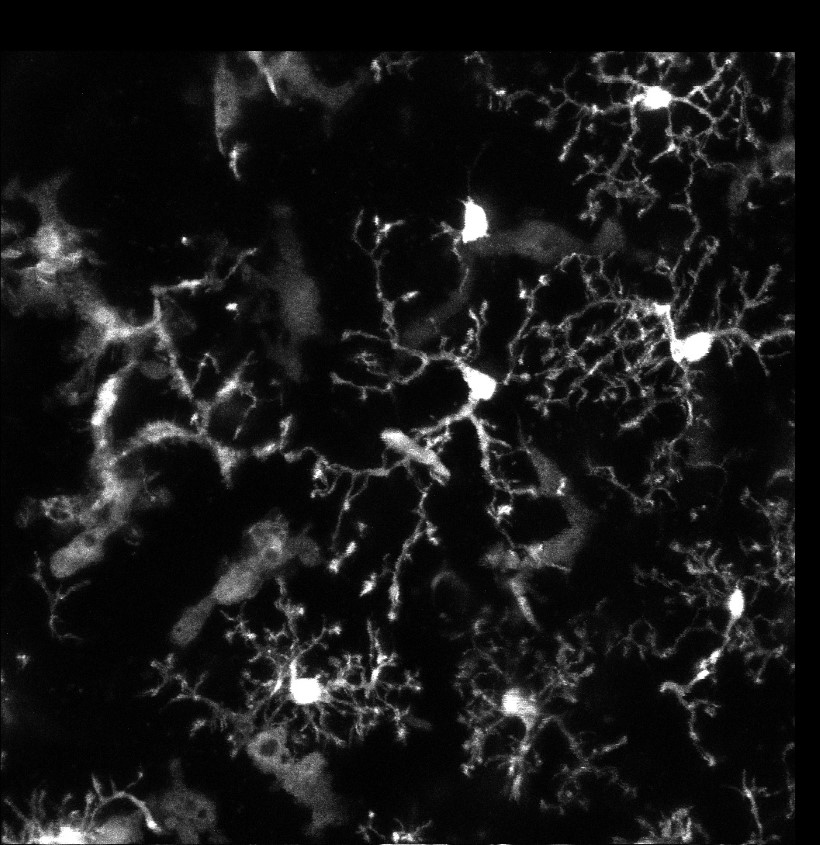Therapeutic approaches in dementia
 There are currently no effective treatments that prevent the progression of the diseases that cause dementia. Research at the Wicking Centre investigates novel drug targets to prevent cognitive decline in dementia as well reducing the build-up of pathology in the brain
There are currently no effective treatments that prevent the progression of the diseases that cause dementia. Research at the Wicking Centre investigates novel drug targets to prevent cognitive decline in dementia as well reducing the build-up of pathology in the brain
Current projects
Maintaining connectivity in dementia
The symptoms of cognitive decline in dementia result from the loss of the connections between nerve cells in the brain. Nerve cells are connected through structures called synapses, at the termination of the nerve cell process called the axon. We know that these structures are vulnerable in disease and can be lost before frank loss of the nerve cells themselves. This project investigates the mechanisms by which nerve cell processes and synapses are lost in disease and focusses on therapeutic strategies that can protect these vulnerable structures. We have found that protecting a specific protein in the axon, the microtubule, can prevent loss of these structures in cell culture models and we are now investigating these protective strategies in animal models as well as probing the mechanisms by which microtubules are broken down in disease.
- Objectives: The aim of this study is to investigate the mechanisms of axon and synapse degeneration in disease and injury and to trial therapeutic agents that protect against axonal and synaptic loss and maintain connectivity
- Research Team: Associate Professor Anna King, Professor James Vickers, Associate Professor Alison Canty, Dr Matthew Kirkcaldie, Dr Jackie Leung, Dr Nan Tian, Dr Carmen Fernandez-Martos, Rachel Atkinson (student), Kelsey Hanson (student), Sam Dwyer (student), James Bender (student).
- Collaborators: Associate Professor Nuri Gueven (UTas)
- Funding: NHMRC project grant 1085221, Judith Jane Mason ANZ trustees, Yulgilbar foundation
Combination therapies in Alzheimer’s disease (AD)
The symptoms of Alzheimer’s disease (AD) are likely to result from a spectrum of disease processes. To date the majority of the therapeutic agents for Alzheimer’s disease have been tested as monotherapies, usually targeting one disease process, however there is potential to learn from other diseases, such as cancer, where combination therapies have proven more effective. This project examines the effect of combining two promising therapeutics in AD, the neuroprotective hormone leptin and the anti-inflammatory drug pioglitazone (thiazolidinedione; TZD).
- Objectives: The overall aim of this project is to determine if leptin in combination with pioglitazone could represent a novel and improved therapeutic approach for treatment of AD.
- Research Team: Dr Carmen Fernandez-Martos, Associate Professor Anna King, Professor James Vickers, Justin Dittman, Graeme McCormack
- Collaborators
- Funding: Wicking Dementia Centre, University of Tasmania